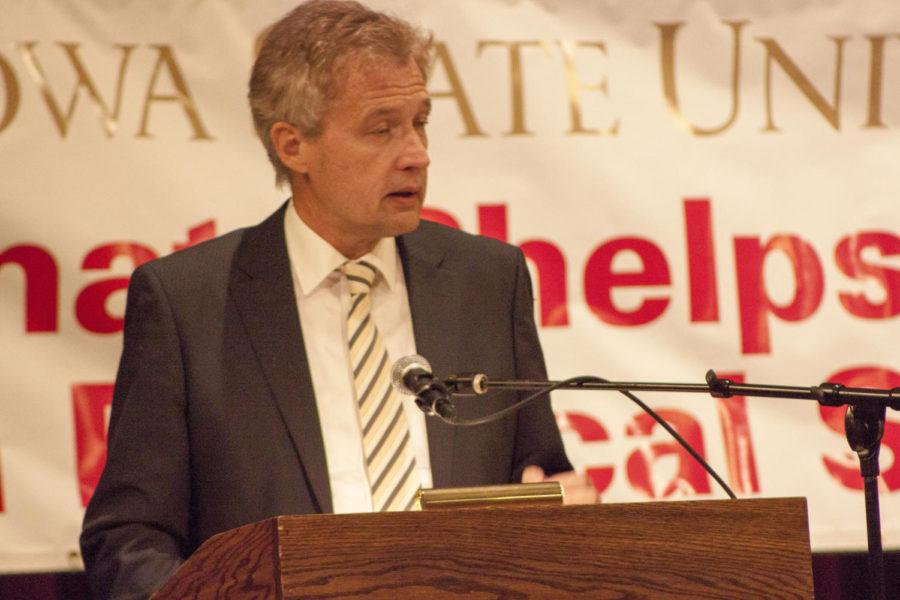France and Germany celebrate 50 years of peace
February 7, 2013
The friendship between France and Germany has been called the “engine” of European integration. A packed Great Hall of the Memorial Union found out why on Feb. 7.
German and French ambassadors to the United States Peter Ammon and Francois M. Delattre, respectively, explained how two countries that were once entrenched in enmity overcame their differences to form a friendship that drives the European economic landscape.
“Today I believe it is fair to say that there is no closer relationship in the world between two countries than France and Germany,” said French Ambassador Delattre. “It is an inspiring story worth telling and is still relevant to all countries in the world.”
German Ambassador Ammon discussed the importance of the French-German friendship to the integration of the European Union.
“We expanded the European Union from 6 members to 27,” Ammon said. “All in all, we went through many dramatic changes, and each time we focused our strategy on building deeper European integration.”
Ammon said the Elysee Treaty, “proof that century-old conflicts can be solved peacefully,” which was established in January 1963, started it all.
“Since its creation in the 1960s, the French and German Youth Exchange has brought thousands of young people together,” Ammon said. “By creating a community of interest, France and Germany has been called the engine of European integration.”
Delattre explained that the aim of the treaty was not only to reconcile the political elite of Europe but also to unite the people of the two countries. He said the relationship between France and Germany has come a long way since the animosity that existed between them not even a century ago.
“Without the French-German engine, Europe simply cannot move forward,” Delattre said. “Germany and France are the driving force behind the Euro.”
Delattre spoke about overcoming the challenges of the political and economic landscape of Europe.
“Europe’s internal challenges are only more cause to further integration,” Delattre said. “The French-German relationship has always been a cornerstone of the European process.”
ISU president Steven Leath said the annual Manatt-Phelps Lecture in Political Science, which is in its 12th year, is a tradition that has had great success at Iowa State.







